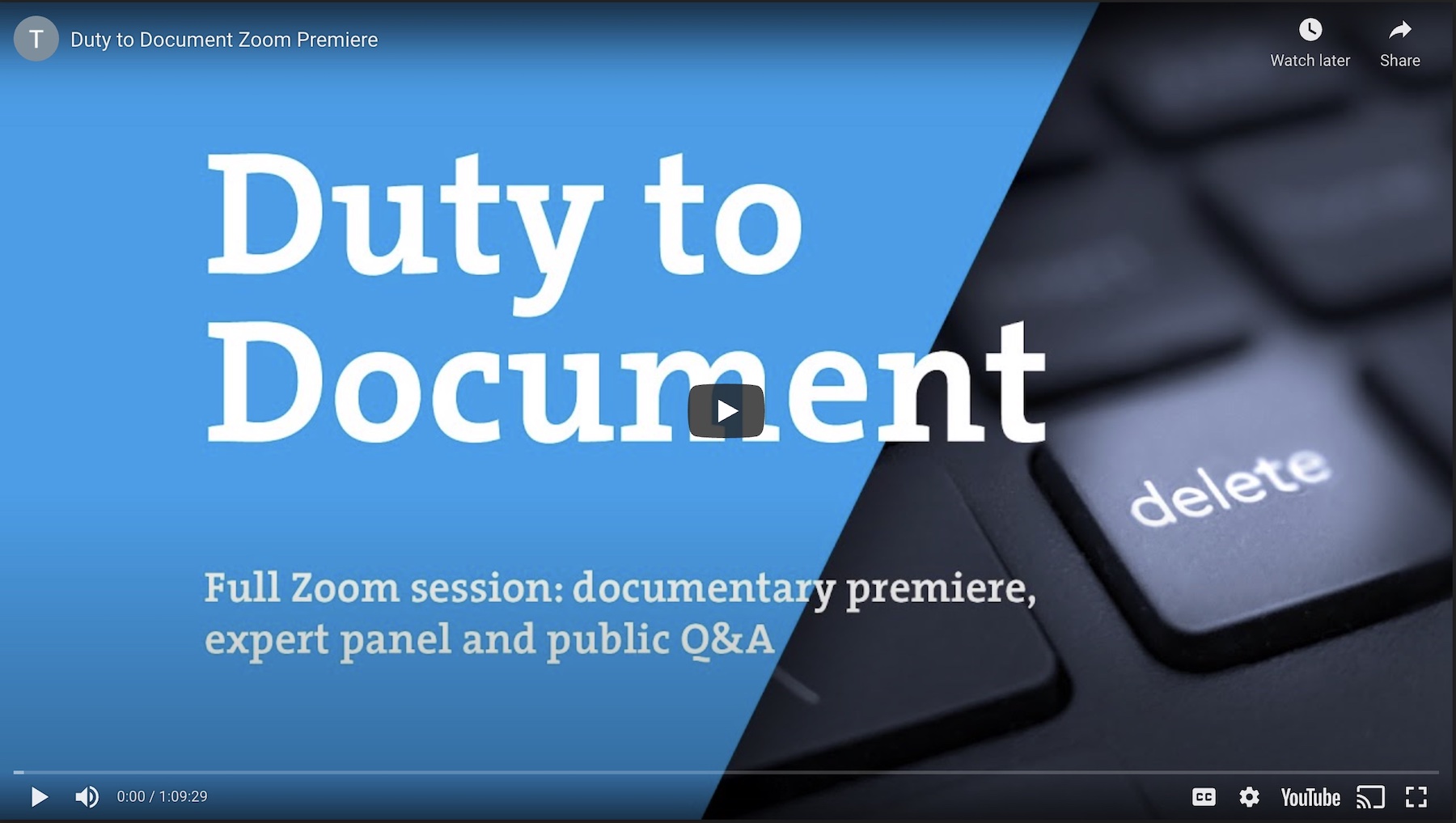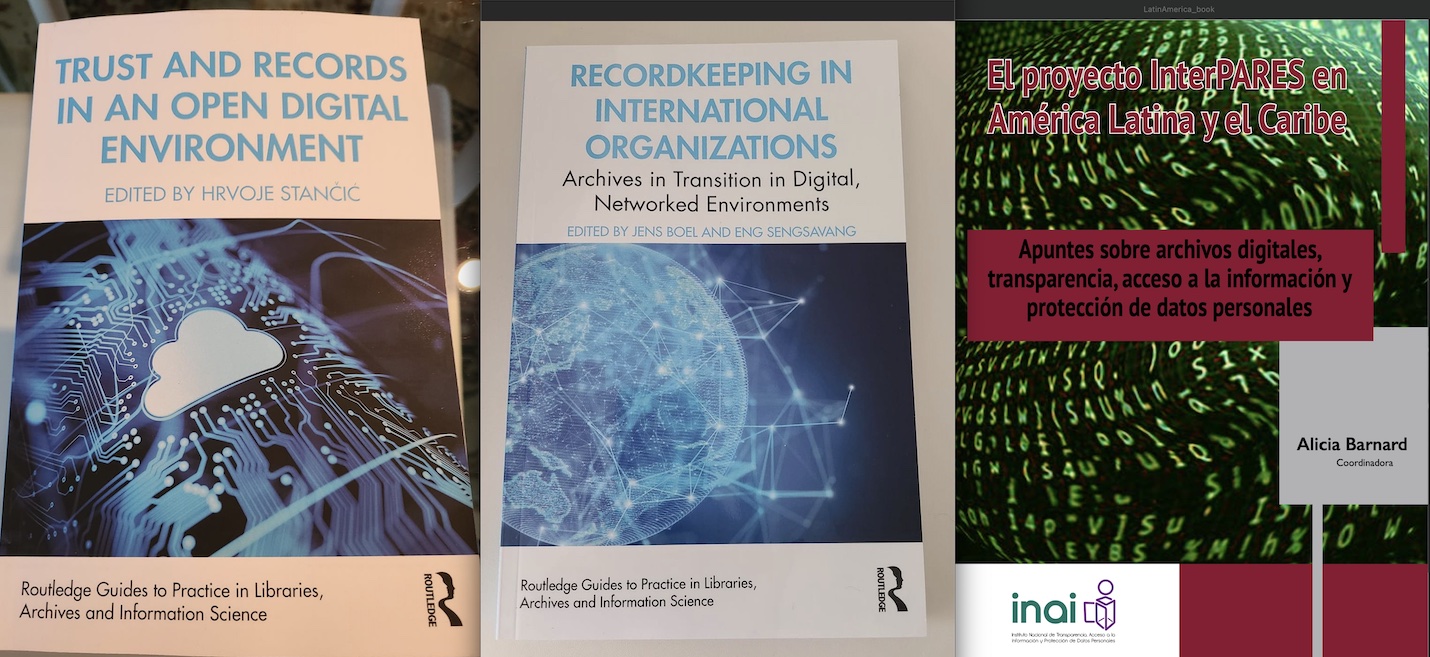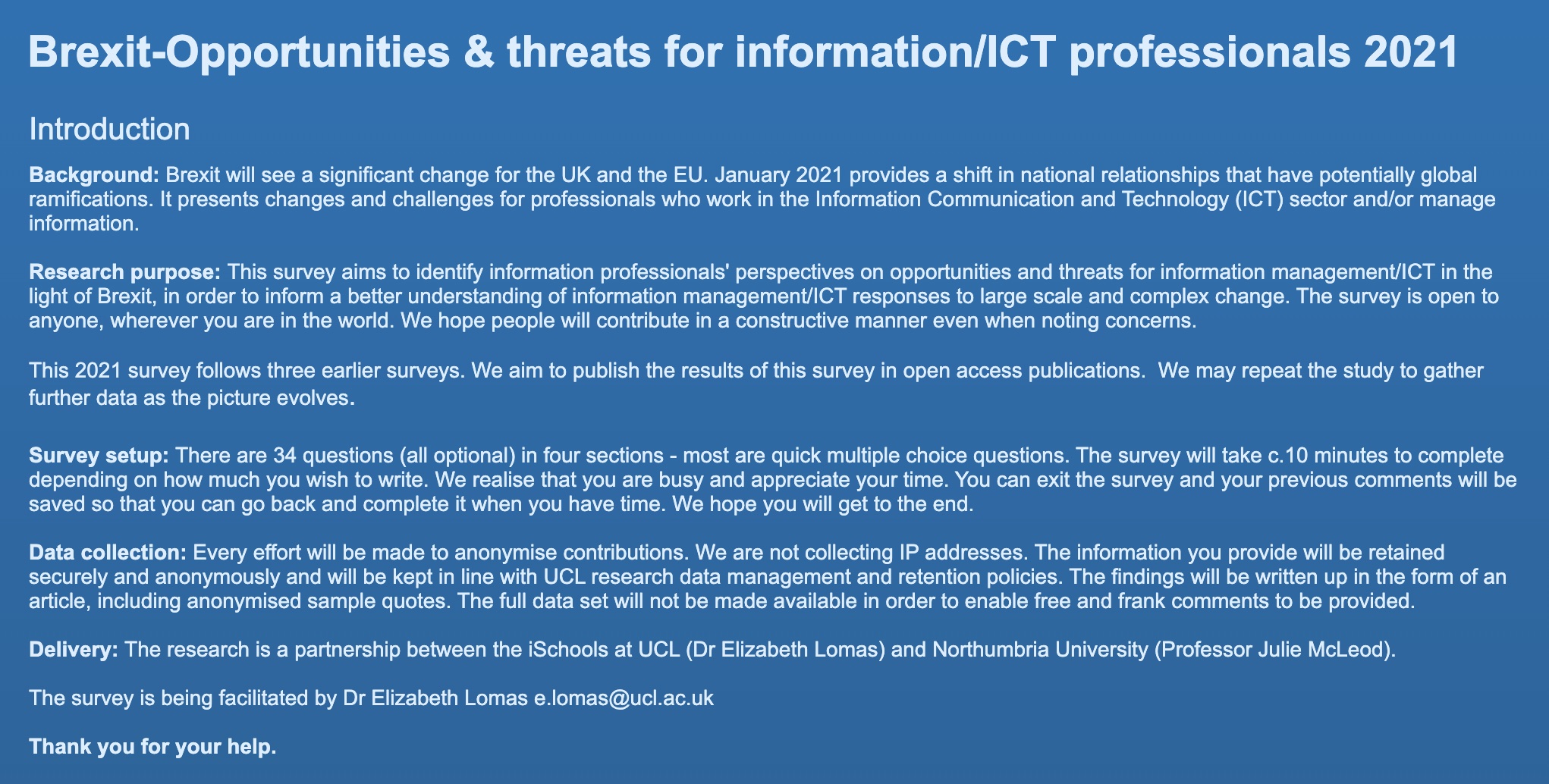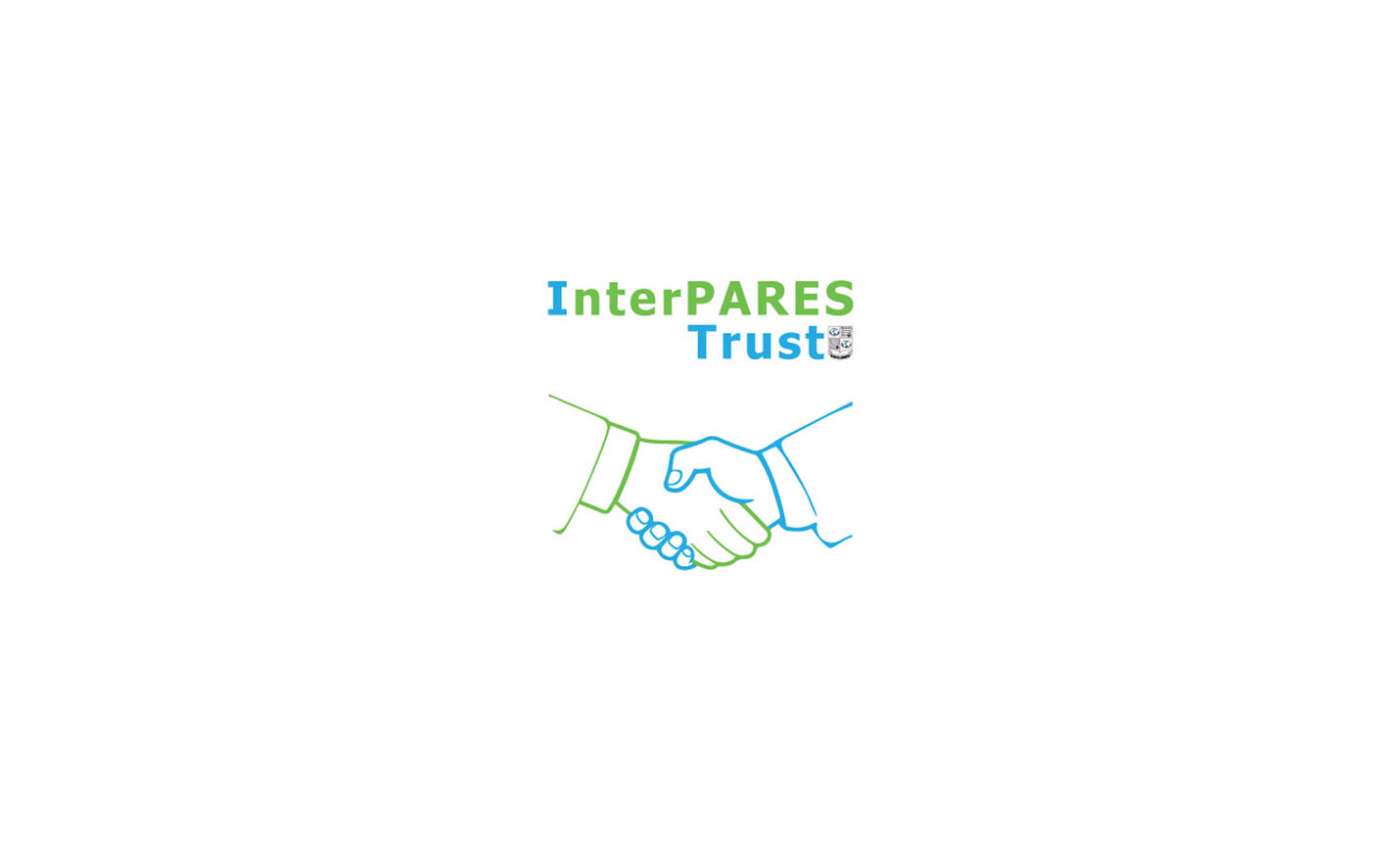
Researchers in the InterPARES Trust study, Model for Preservation of Trustworthiness of the Digitally Signed, Timestamped and/or Sealed Digital Records (TRUSTER Preservation Model) are collaborating with researchers in another SSHRC-funded project, Blockchain Technology for Recordkeeping: Help or Hype? (Victoria Lemieux, UBC, Project Director).
On June 21, 2016, Hrvoje Stancic, Co-Director Team Europe, InterPARES Trust and professor in the Faculty of Humanities and Social Sciences, University of Zagreb, Croatia, attended a one-day policy workshop on behalf of both projects. The workshop, entitled Blockchains for Social Good. Defining an EU vision and research agenda for distributed ledger technologies applied to sustainability challenges, took place in Brussels and brought together approximately 70 participants and 20 speakers. The following is his report on the day.
Announcement of the workshop
“Distributed Ledger Technology (DLT) is not just Blockchains and Blockchains is not just Bitcoin. Experts are saying that the Internet will come to be seen as the background technology that made distributed ledger applications possible. Will DLT really bring a more profound change to our societies over the next ten years than the internet has over the past ten? This one-day policy workshop will bring together experts, practitioners, politicians, civil servants and citizens interested to discuss what role the European Institutions and in particular the Horizon 2020 public funds for research should be playing as DLT begins to encroach on areas far removed from finance and into every aspect of our social interchange.
The event aims at tacking stock of existing activities in this emerging field, considering their regulatory and standardization implications, as well as at defining a roadmap of how the European Commission can contribute to these developments, in particular through Horizon 2020 actions.”
The introduction to the event was given by Markku Markkula, President of European Committee of Regions. He argued that the Distributed Ledger Technology (DLT) that the blockchain is based on should be utilized to create new jobs and support sustainable growth. Smart specializations are part of the Digital Single Market (DSM) and the paradigm shift should be based on smart digitization.
He was followed by Mário Campolargo, Director Future Networks, DG Communications Networks, who argued that the blockchain might be a game changer in a sense that it might affect the management of complex business processes.
The plenary speech was given by Primavera De Filippi, CNRS, Research Fellow at Berkman Center for Internet & Society, titled DLT Beyond financial applications. Firstly, she gave an overview of existing as well as potential applications of DLTs stating that they are or could be used to secure data storage and automate data management. She mentioned the execution of smart contracts. She explained that the blockchain concept utilizes the so-called cryptographic primitives using append-only data format. She claimed that in the context of the cryptocurrency Bitcoin, the larger the network the harder it is to validate the resource. That is why the mining of the Bitcoins represents a proof of the work being done. Blockchain is based on the concept of distributed consensus as to the outcome of computations. The applications of the blockchain could be found primarily in the context of financial disintermediation (e.g. Bitcoin), verification of documents and records (e.g. universities are using it to verify issued diplomas – the diplomas’ digital fingerprints (hashes) are digitally signed by the university), land (public) registries (e.g. in Estonia, the solution is delivered by GuardTime using Keyless Signature Infrastructure, KSI) etc. The blockchain technology, De Filippi argued, could well fit into business environments where separation of duties is in place (multi-signatures i.e. approval of multiple parties). It can be coded in the system because the rules of accountability are baked directly into the blockchain technology.
Further, she explained that the distributed ledger technology eliminates the trusted third party (e.g. you trust a bank in a transaction being made), i.e. the intermediary (the bank). If individuals trust the technology then they can trust each other without the trusted third party since the network itself is executing the code, not the operator. In that case the value is distributed to those who are creating it. In the ensuing discussion, Amin Rafiee, from the Bitnation, suggested this concept could be used in order to bypass banking institutions and directly connect people in the financial transactions. He argued that this could motivate people to directly help people in need, like refugees. Nevertheless, the Bitcoin still remains unregulated, and in a later discussion Jakob von Weizsäcker, member of the European Parliament, compared it to a possibility of creating a “New Euro” or a “New Pound” which one could use and not pay taxes (will not happen, of course). Therefore, the Bitcoin, in his words, will be regulated sooner or later because one should not avoid taxes (someone has to fix roads, right! The government does!). However, von Weizsäcker further argued that the blockchain could be used to fight VAT fraud.
De Filippi also mentioned several innovative blockchain applications. First of them is the so called smart lock. The lock will open only when you prove that you have the valid token (recorded in the blockchain). Using this, you may, for example, have an automated Airbnb. Further, she explained that the connections of the physical and digital worlds will drive the transition from the property-based society to the usage-based society. She gave the example of a self-driving and self-owning car (i.e. car owns itself). The car can drive around and pick up people, earn money for itself and pay for the gasoline and necessary repairs. This is in line with the concept of the Decentralized Autonomous Organization (DAO)2 (whose concept was recently hacked, and the money was stolen from it by exploiting the bug in its smart contract code). However, the DAO concept might be used, she suggested, merely to mediate decisions between the people.
De Filippi proceeded with the comments on what might be the role of the EU in the context of the DLT. She claimed that if we lose the middle man, we will lose the ability to govern the technology. Instead we should use it in order to make governance more efficient. She is in favour of regulating the producers of the code and making them implement the back door just in case something goes wrong. She commented that although the concept of DLT is decentralization, the miners are becoming more and more centralized and therefore easier to influence. The challenge will be how to promote innovation and at the same time keep things consonant with the law.
This was followed by the roundtable Strengths and limitations of distributed ledgers technologies for social applications. It started, interestingly, by Aaron van Wirdum from the Bitcoin Magazine saying that he is not in favour of the blockchain. He argued that we can live without it. Mathew Golby-Kirk, IBM Global Blockchain Labs Enablement, argued that the disintermediation is not embedded in the technology, but that it could happen as a side-effect. He pointed out that IBM works with the regulated industries, and that using a consensus-based technology is a drawback. However, a group of companies can form a network of companies they want to work with, and can then set up their own blockchain. He drew attention to the Hyperledger Project. Jessi Baker, Provenance.org, discussed blockchain for tracing provenance. At Provenance.org they are working with fair trade fishermen in south-east Asia in order to trace the fish from the fishermen to the large food chains, i.e. they have implemented blockchain for achieving traceability in the food and beverage industry. She claimed that by implementing such a system the producers might build their reputation. Martin Köppelmann, Consensus Systems, is the person who is on the team hired by the creators of the DAO to recover the DAO and clean things up. Although encouraged, he did not reveal much about “the DAO incident”, merely mentioning the possible solutions – soft and hard fork. However, he thinks that the blockchain will bring as much change as Internet did. In his opinion, online companies like Amazon and eBay will eventually be replaced by more efficient solutions because there is no point in having multiple platforms. However, although this could bring more efficiency, it would bring the problem of monopoly. The blockchain, in his opinion, could be a solution. On the scale issue of the blockchain, he mentioned that it could be solved by blockchain sharding. He also mentioned that he and his team are working on the project called Circles, an experiment to create Universal Basic Income (UBI). James Hazard, CommonAccord.org, warned about the problem of data security in the context of the blockchain and asked how one can know if his or her data is where one does not want them to be (because every node has everything). Brett Scott, Alternative Finance Explorer, University of the Arts London, fellow of the finance innovation lab, commented on the issue raised previously that cryptocurrency is democratic because everyone jointly decides on everything. He questioned how one can give people true, authentic voice in this, and how one can combine blockchain with true governance? Even if centralization is not good it does not mean that decentralization will fix it. Amin Rafiee, Bitnation.co, pointed out that at Bitnation they have developed Bitnation Public Noraty (BPN) to sign and permanently record legal documents on the blockchain. He mentioned that by implementing blockchain in the future, people might be able to choose their own legal systems.
Next came the roundtable, Decentralizing governance, chaired by Robert Madelin, Senior Adviser for Innovation, European Political Strategy Centre. Marco Sachy, Dyne.org foundation, worked on the D-CENT project where they have developed Freecoin7 as a middleware between blockchain (of your choice) and users. It is used in the participatory and democratic organizations for motivating the participants (e.g. in Iceland it is used as a reward system for political participation). Catherine Mulligan, Imperial College, UK8, introduced registering qualifications on the blockchain at the universities. She mentioned the possibility to implement DLT to critical infrastructure (e.g. smartgrid) which would not solve the security issue (i.e. prevent the smartgrid of being attacked) but could function as an early-warning system. She has also mentioned its usage in waste management. Jakob von Weizsäcker, Member of European Parliament9, said that the European Parliament thinks that it is still too early to regulate the usage of blockchain and Bitcoin, but that they are actively waiting (and monitoring it). In his opinion blockchain will bring about a new kind of governance. Philippe Dewost, Caisse Des Dépôts, France, suggested that we should not regulate blockchain, but its interfaces to the real world. Philip Boucher, Policy analyst, European Parliamentary Research Service, said that they have started a new initiative that will produce a document for Members of the Parliament titled “How blockchain could change our lives?”. Pindar Wong, Cyberport, Hong Kong, ScalingBitcoin.org, predicted that blockchain will have a global role in cross-border issues because it takes too long to regulate them now (interoperable smart contracts could solve this problem). He recognized the problem of interoperability of blockchains. Also, he compared society today, where we ask permission for something and then get it, with the DLT-based society, where we do not have to ask for permissions to do anything. That is, the developers of the Bitcoin did not have to ask anyone to create Bitcoin. He introduced the term premissionless monetization.
The final session of the day was Defining a roadmap for EU research on Blockchains for Social Good. I had to catch a plane so I did not participate in it
All presentations and an audio recording of the workshop will be available online.
Brussels, 21 June 2016
Hrvoje Stancic
Co-Director Team Europe, InterPARES Trust
Faculty of Humanities and Social Sciences
University of Zagreb, Croatia





